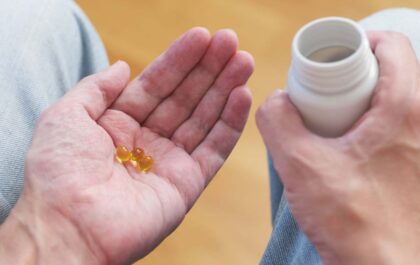Table of Contents
Introduction
Several factors can be responsible for dry mouth, including medications and hormones. Here are some solutions.
You have a dry mouth when your salivary glands are not active enough to moisten your mouth. Some medications can be the cause, including antihistamines, antidepressants, and hypotensives.
A dry mouth can also be a symptom of diseases such as diabetes. Or it can be caused by hormonal changes related to menopause. In addition, people whose nerves have been affected or who have undergone cancer treatment may have a constantly pasty mouth.
Is There Anything We Can Do About Dry Mouth?
Dry mouth, thick mouth or xerostomia: Whatever you call this discomfort, a lack of saliva or moisture in the mouth can give rise to annoying and embarrassing problems. Why put up with them when you can do something about them? Feel free to try one of these home remedies to cure dry lips! And if not, here are some answers to your questions about dry mouth.
What are the Consequences of Dry Mouth?
In addition to discomfort, dry mouth can lead to some complications. “Saliva goes a long way in keeping oral tissue healthy and reducing tooth decay,” says doctors. It removes food particles, acids and bacteria. Without it, you can have more cavities and infections.
Also, when you have a dry mouth, you have more trouble chewing and tasting your food; you suffer more often from sore throat, your lips crack, your voice becomes hoarse and your breath. Ensure you know the symptoms, causes, and remedies for bad breath.
What To Do (or not)?
First, write down what not to do. By making lifestyle changes, you can reduce the trouble caused by dry mouth. Avoid certain beverages and tobacco
Avoid caffeine, alcohol and soft drinks. Also, avoid smoking. All of these can make your mouth drier. Check if you have any of these symptoms of too much coffee consumption.
Avoid Certain Foods
According to the National Institute of Dental and Craniofacial Research, very salty or very spicy foods can sore and irritate an already dry mouth. Avoid eating sugary and sticky foods. Without saliva to clean your teeth, you may have more cavities. If you give in to temptation, brush your teeth immediately afterwards.
Examine the Ingredients of the Products Used
Avoid mouthwashes containing alcohol: they will have a drying effect on the oral tissues. Also, avoid kinds of toothpaste that contain sodium lauryl sulfate. Since it is a kind of salt, you will have a burning sensation in your mouth.
Be careful never to mix these ingredients during your skincare!
More Saliva
By chewing sugar-free gum, you stimulate saliva production. Sugar-free sweets, especially those made with lemon, mint or cinnamon, have the same effect.
Plus, chewing gum is one of the incredible ways to burn calories without the need to go to the gym!
Wet Your Lips
Take frequent sips of water or spray your mouth regularly with a small spray bottle filled with water. “Water is not as beneficial as saliva because it does not have the same properties,” says Doctors.; but it has the merit of moistening the mouth.”
Consult Your Dentist for Dry Mouth
Ask your dentist to recommend products like toothpaste or mouthwashes to relieve oral tissue. They may also prescribe tampons or artificial saliva sprays. For your well-being, learn about things dentists never put in their mouths.
Related posts
Featured Posts
Exploring Advanced Techniques in the Laser Engraving Machine: 3D, Texturing, and Multi-Layered Designs
Many industries have spoken for the laser engraving machine because of its results and versatility. But recently, many advancements have…
Benefits of Vitamin D
Introduction One cannot live without the benefits of vitamin D because its virtues are essential for good health. But do…


